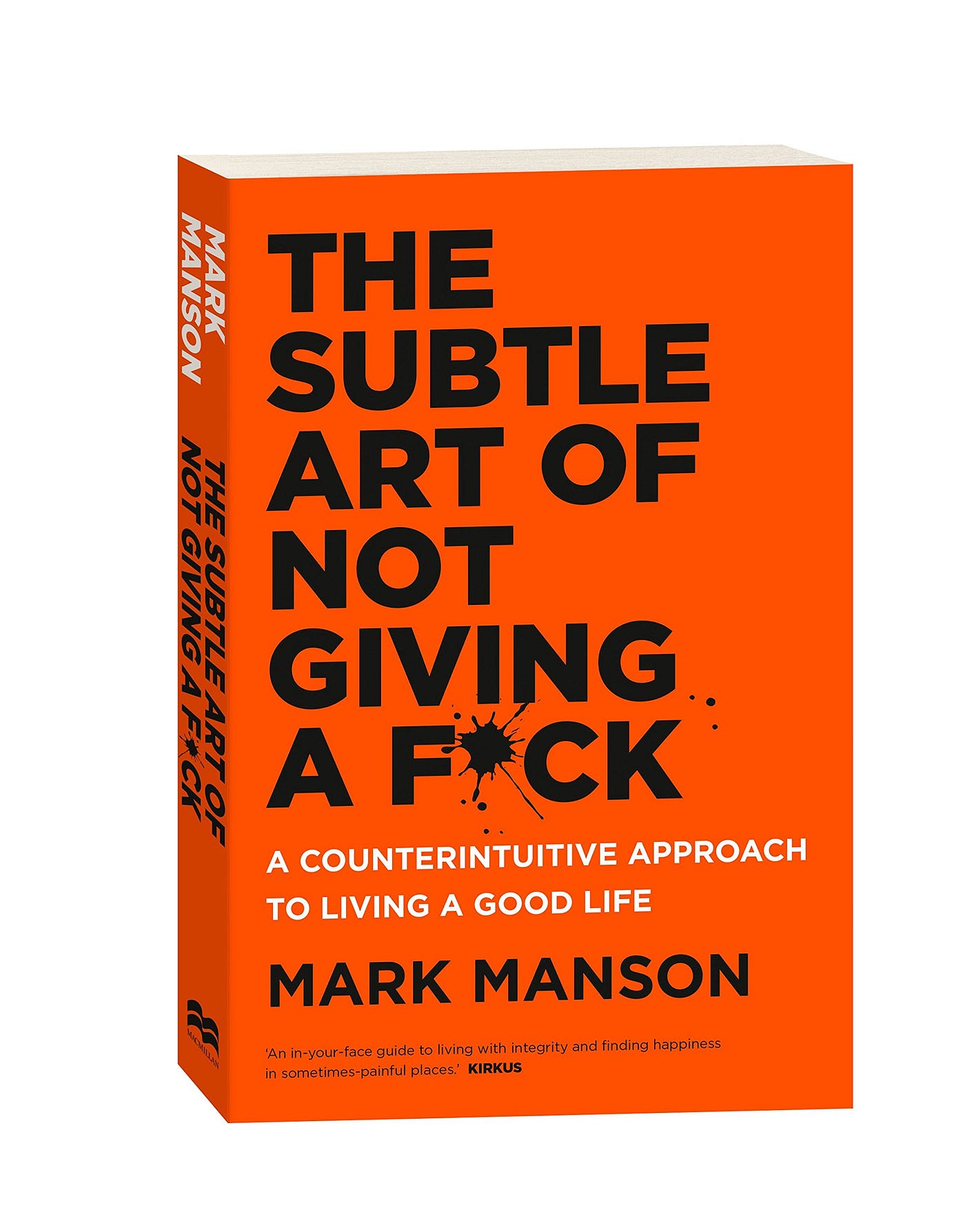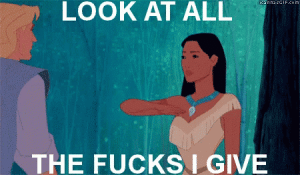
Mark Manson, a dating advice and travel blogger, wrote a book in 2016 entitled, The Subtle Art of Not Giving a F*ck. The book reached #1 on the New York Times Bestseller list in early 2017. It remained on the bestseller list for more than 4 years. I just checked the list for the “Advice and How-to” category, and it is still at #4. It is no longer charting as a mass-market or nonfiction book, if it ever had. His latest book is a biography of actor Will Smith, entitled Will.
As suggested in the title, it is full of expletives and the f-word. It is also full of stark bromides that are the antitdote to today’s illusion that everyone is a self-actualized person. The life lesson to be delivered in this book is that, part of the problem with success, is that it only is achievable when we no longer aim for it. Once we abandon questions like “am I happy?”, we are far closer to achieving happiness.

In its kind of casual, punchy style, there were problems I had in the theoretical consistency with the book. It turns questions on how to set happiness as a goal into questions of “how much of a certain kind of drudgery will I be willing to endure in order to say that I still feel contented?” The question is asked this way, because, to become good at anything, requires a certain kind of drudgery, whether it is practicing an instrument or to practice writing to become good at one or both of them. And one person’s “drudgery” is another person’s “fun”. You need to figure out which you find to be the most fun. And where some of us may excel in a small number of areas, we don’t excel in all areas over the course of our lives, generally.

I like this thinking, but then he rails against “positive thinking” movements without reminding the reader that in order to put up with the drudgery in pursuit of a goal, one has to remain optimistic and positive. You also need to be surrounded by supportive and caring people. None of this is mentioned. He seems to write as if the pursuit of life’s goals were entirely solitary. That is normally a recipe for failure. What I think he is really against is the most recent trend in trying to tell our children that they are all champions, and handing out trophies to everyone, and so on, leading the kids to feel entitled as adults. That is valid, but he treats it as though it was the only application of positive thinking in existence. Having a shadow in a headlock, he thinks he has won the argument. But the obvious truth is that without positive thinking, you can’t get psyched up, and you can’t become motivated, and your tolerance for the drudgery he speaks of will quickly evaporate.

The book really states its case in the first 2-3 chapters, then it delves into biography, autobiography, and anecdotes. The anecdotes were interesting, but I felt that they caused me to lose focus on the main messages of the book, and quite frankly, it didn’t seem to be worthwhile reading at all, so I skipped past all of it to the last chapter. I think it was in the spirit of the book, and the author would have approved. He has my money, so I am sure he doesn’t give a f*ck. If you would like to hear from a blogger who has actually bothered to read all of it (with the emotional scars to prove it), you can click here.

When Manson coins the phrase “not giving a fuck”, he really means that we should pick and choose what we care about, and not get concerned over side issues that only end up being distracting. But those little things can be big, also. Negative things can happen to us that are not our fault, and he acknowledges that we are still responsible for our actions and decisions that need to be done or made as a consequence.
While he lacks depth in his writing, his book is still useful as a compendium of tips and tricks for a more rewarding life. Don’t look for an organized system on how to live here. His ideas are never fleshed out enough for that. Maybe he just didn’t give a f*ck.
Visits: 66
